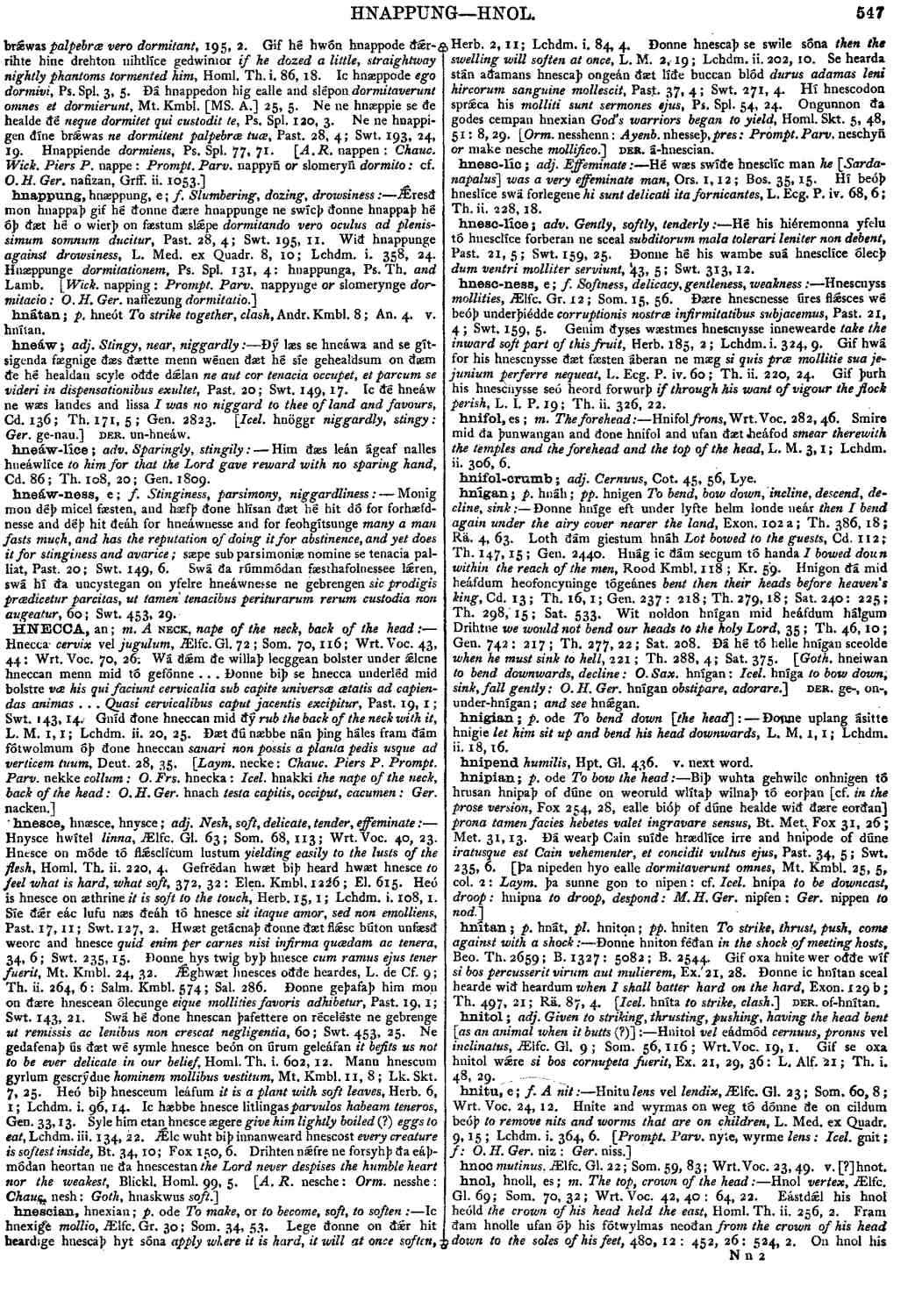hnígan
- verb [ strong ]
-
Ðonne hníge eft under lyfte helm londe neár
then I bend again under the airy cover nearer the land,
- Exon. 102 a; Th. 386, 18; Rä. 4, 63.
-
Loth ðám giestum hnáh
Lot bowed to the guests,
- Cd. 112; Th. 147, 15; Gen. 2440.
-
Hnág ic ðám secgum tó handa
I bowed down within the reach of the men,
Rood- Kmbl. 118; Kr. 59.
-
Hnígon ðá mid heáfdum heofoncyninge tógeánes
bent then their heads before heaven's king,
- Cd. 13; Th. 16, 1; Gen. 237: 218; Th. 279, 18; Sat. 240: 225; Th. 298, 15; Sat. 533.
-
Wit noldon hnígan mid heáfdum hálgum Drihtne
we would not bend our heads to the holy Lord,
- 35; Th. 46, 10; Gen. 742: 217; Th. 277, 22; Sat. 208.
-
Ðá hé tó helle hnígan sceolde
when he must sink to hell,
- 221; Th. 288, 4; Sat. 375.
Bosworth, Joseph. “hnígan.” In An Anglo-Saxon Dictionary Online, edited by Thomas Northcote Toller, Christ Sean, and Ondřej Tichy. Prague: Faculty of Arts, Charles University, 2014. https://bosworthtoller.com/19369.
Checked: 0